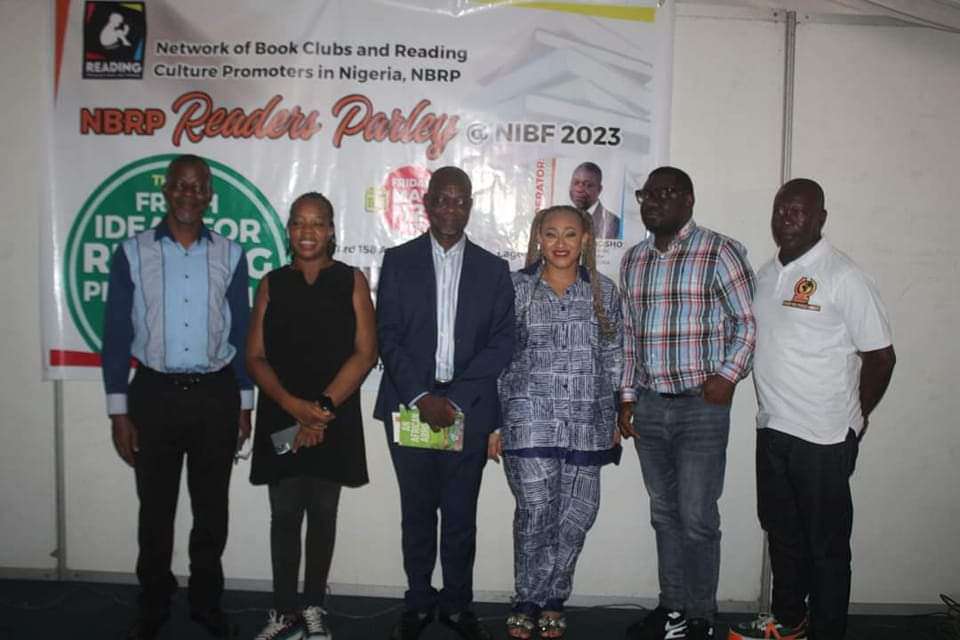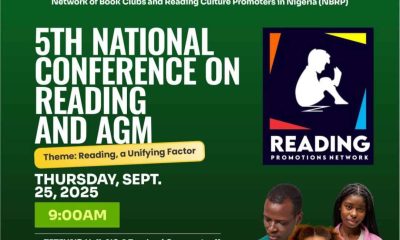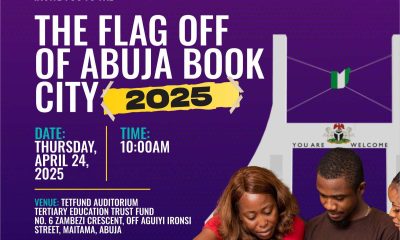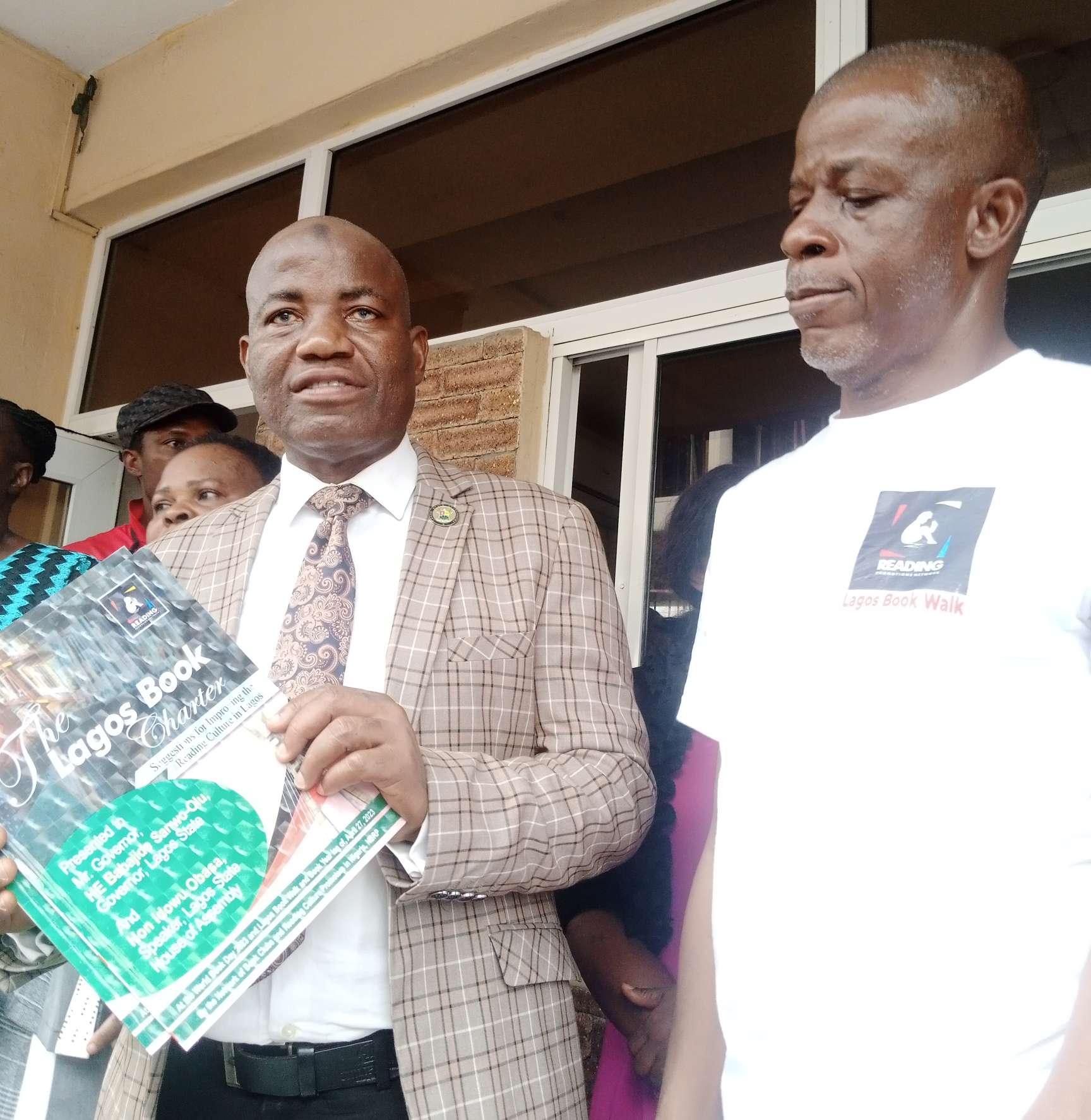Nation
NBRP holds book parley, explores new ways to promote reading culture in Nigeria

As part of activities during the 22nd edition of the Nigeria International Book Fair in Lagos, the Network of Book Clubs and Reading Culture Promoters in Nigeria (NBRP) hosted a Readers’ Parley to examine the topic, ‘Fresh Ideas in Reading Promotions.’
The well-attended event brought together stakeholders from across the book ecosystem – reading enthusiasts, researchers, booksellers, publishers, librarians, etc.
In his brief remarks of welcome, the President of the NBRP, Richard Mammah expressed delight at the turnout, describing the event as the culmination of various collaborations between a number of critical stakeholders in the Nigerian book industry, as well as an opportunity to tease out various ways of engendering a more robust reading culture – especially among the young and impressionable members of our society. .
The Parley was a wide-ranging and interactive panel discourse spanning the entire spectrum of the book and literary experience. It was moderated by Toyin Akinosho, a petroleum geologist by training, but also an energy reporter. A keen arts enthusiast, he serves as the Managing Partner at Upstream Information Update (an energy intelligence consultancy).
The panel consisted of three of the leading publishers in Nigeria – Amara Chimeka, CEO of Purple Shelves; Azafi Omoluabi, CEO of Parresia Publishers; and Othuke Ominiabohs, Managing Director at Masobe Books – as well as Dr. Raphael James, a veteran library operator who is the founder and Director of the Center for Research, Information Management and Media Development (CRIMMD).
Under the prodding of the versatile Mr. Akinosho, the quartet of panelists brought their respective experiences to bear on topical issues such as the continued relevance of the Book (which they described as a product – and yet, more than just a product, but also an intangible but invaluable aspect of human civilization and culture, without which society would atrophy and eventually dwindle into irrelevance). They also dwelt on other aspects of the book trade such as marketing; the frequency or otherwise of book readings and signings by authors and what impact these gatherings are supposed to have; other author/publisher/reader engagements; the relative fortunes of fictional works versus non-fiction in the Nigerian marketplace (on one hand) and between high-brow fiction, and fiction in everyday language (on the other).
In his contribution, Dr. Raphael James stressed the importance of well-equipped libraries in deepening the nation’s reading culture. Using his experience as a library owner and donor of books to institutions across the nation, he debunked the notion that Nigerians – and especially young people – do not read; instead, he blamed the declining interest in the pastime on the dearth of libraries in the country. A deliberate investment in libraries by relevant stakeholders, he contended, would see a corresponding resurgence in reading.
The Parley also featured a lively interactive session afterward, as some members of the audience expressed interest in, or concern over, various aspects of the nation’s book industry in particular, and its educational system in general – and ways of creating a buzz around specific events, or periods of the year. One speaker also suggested that politicians (especially those who run foundations) as well as faith-based organisations be made to buy into the quest for a robust reading culture by investing in libraries.
Though the Parley ultimately came up with few far-reaching ideas on ways to promote reading in Nigeria, it nevertheless served to situate the issues around the subject in their proper context – albeit from the standpoint of publishers and booksellers.
Panelists and participants alike were unanimous in commending the NBRP for coming up with the idea of the Readers Parley, and also recommending that it become a more regular affair, so as to do as do periodic assessment of progress or otherwise, and do away with the current situation in which the myriad of publishers and booksellers exist in silos or bubbles, each one unaware of what the others were doing.











